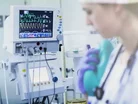Drug screening – improving the testing process

Ahead of an upcoming feature in Healthcare Global Magazine, Novoheart’s co-founder and CSO Kevin Costa gave us some insight into the issues faced when researching, developing and getting new drugs to market.
One of the big issues in the treatment of cardiac conditions currently is how difficult it is to get new drug candidates tested and approved using existing technology and parameters. Typically, the development of a new drug candidate costs US$2-4bn and takes more than a decade, with failure rates for new drugs of circa 90%.
The primary cause of drugs being withdrawn is heart toxicity. In testing, non-human and non-cardiac cells may be used which is not the optimal way to get an idea of human response and can lead to false negative or false positive clinical results, compromising overall success.
The limited number of human hearts to test on particularly impacts the proper testing of new drugs designed to treat heart condition and has in the past led to products entering the market which were unsafe.
See also
- Pfizer invests $465mn to develop new pharmaceutical production facility
- Online consultations: disrupting rather than destabilising
- Integration is everything: why joined up care requires joined up systems
“The way scientists test diseases are often by simulating that disease on an animal,” explains Kevin Costa, Chief Science Officer at Novoheart. “They call these ‘knock-out mice’ or ‘transgenic mice’, where you can change aspects of the mouse to behave like the human disease… but the bottom line is, mice aren’t humans, and especially the heart is fundamentally different as the heart in a mouse will beat seven or eight times as fast.
“It’s not only faster and smaller, but there are obvious things about the heart that are different and have very fundamental consequences in terms of how the heart handles calcium, how the heart is susceptible to arrhythmias, how the heart contracts, and what the actual molecular interactions are within the hear muscle… all in all, this means the mouse heart just isn’t predictive of how human hearts behave.”
Novoheart has developed living heart tissues which can deliver a predictive accuracy of 90% or more, which has the potential to make screening processes for new medication safer, faster and cheaper. The mini heart acts as an advanced human heart surrogate and can be used by drug developers as a solution to what is currently an ineffective system.
Tags
Cardiology- 5 mins with... Mark Day, iRhythmTechnology & AI
- Could the screening process for cardiac drug approval be set to change forever?Technology & AI
- Amazon hires a new cardiologist to its healthcare divisionTeleHealth & COVID-19
- Addressing complex healthcare challenges within the Middle EastDigital Healthcare



